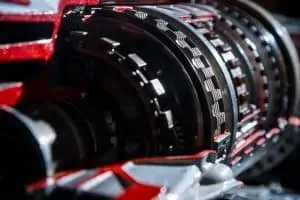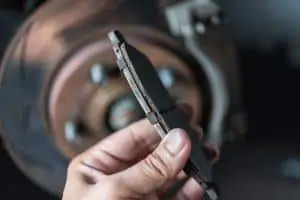What Does an Extended Warranty Cover on a Used Car?
Whether you have a used car or whether your Original Manufacturer’s Warranty is expired, an extended warranty could be a good idea. One that the sooner you act the better. Whether it is bad brakes, transmission issues or electrical system or any other major vehicle system malfunctions, extended warranties will cover the repairs and labor cost to get your car fixed. Most extended warranties base pricing off of the year, make and mileage of the vehicle. As your vehicle gets older and the mileage increases there are some warranties that cost more and cover less making it harder to qualify for coverage.
Should you consider a warranty? Let’s take a moment to review the options and benefits for covering your vehicle against breakdowns and unexpected repairs.
What is an Extended Warranty?
An extended warranty can also be called a service agreement, vehicle service contract or can be offered as Mechanical Breakdown Insurance. Extended warranties usually cover major failures that can occur during the ownership of your vehicle. An extended warranty may be sold at the dealership when buying a used car or post purchase as an aftermarket offering.
You pay for an extended warranty one of a couple ways:
- Paid up front.
- Monthly payments for the term of contract.
- Financed along with your used vehicle’s purchase.
With most options, there are terms and conditions that spell out items covered and those excluded. Many companies offer different levels of coverage options. It’s best to fully understand everything that is covered with your plan. Also, something to note, some plans require you to pay for repairs up front and be reimbursed after the repairs are complete. Most extended warranties are offered for a set amount of years and agrees to repair both parts and labor. Important Note: Extended warranties are not insurance products.
What is Mechanical Breakdown Insurance (MBI)?
MBI covers major failures that can occur during the ownership of your vehicle. These are failures that would be unrelated to an accident and often involve an unexpected breakdown or mechanical failure. MBI does not cover damage caused by a driver or repair damage from an accident or wear and tear. Most MBI policies allow you to pay monthly installments. Most MBI policies are offered for a set amount of years and usually cover both parts and labor. Many companies offer different levels of insurance options. Important Note: Due to the nature of MBI and it only being offered through an insurance company, it is regulated by the insurance industry for standards and claims.
Doesn’t My Car Insurance Cover Mechanical Breakdowns?

Examples of Items Covered Under an Extended Warranty
Make sure to review the plans, deductibles and items covered when researching options. The plans usually offer different coverage levels and are designed to fit within your personal budget.
In general, below is an example of items covered under extended warranties.
Steering System
Electrical Components
Engine Assembly
Drivetrain
Transmission
Exhaust Systems
Alternators, Manifolds, Pumps
Heating and Cooling Assembly
Examples of Items NOT Covered Under an Extended Warranty
Extended warranties are not designed to cover regular maintenance or body damage due to an accident. Extended warranties pick up where your car insurance ends. Most policies and plans exclude items like the following
Routine Maintenance
Brake Pads/Brake Shoes
Fluid Replacement
Spark Plugs
Tires
Filters
Wheel Balancing
Body Damage
Scratches, Dents, Paint Chips
The above items fall under service and routine maintenance.
Do I Need an Extended Warranty on a Used Car?
Based on the above topics, the answer to, “Do I need an extended warranty on a used car” should come down to several questions.
Does the used vehicle purchased have a remaining OEM warranty?
Is your car make and model prone to repairs?
How long do you plan to drive your vehicle?
Do you add a lot of mileage on your vehicle?
What are your personal budgeting habits and can you self-insure?
Most importantly, if happened today, will an unexpected breakdown break your budget?
As with any plan or policy of this type, you may never use the coverage but certainly when and if you do have an unexpected breakdown, it can save you thousands of dollars per repair. Only you can balance that decision.
Is Having a Warranty on a Used Car Worth it?
An important thing to remember is that all insurance products or warranty plans offer coverage to protect you from unexpected costs that can arise if and when you have to utilize coverage. If nothing ever happens to your vehicle during your ownership, there is a possibility that you will not use the coverage. But what these plans and coverage options offer is peace of mind.
These plans only pay out when needed. If you have enough money to pay for unexpected repairs to your vehicle on your own, then you can self-insure by not purchasing an extended warranty or mechanical breakdown insurance coverage. However, although you may service your vehicle on the regular and keep it clean and neat, you cannot predict what is going to happen under the hood of the car.
What am I Looking for in an Extended Warranty?
No matter how well built your vehicle is, unexpected problems are bound to arise. For many, their vehicle is their lifeline. A claim filed on your vehicle can cost thousands depending on the repair. The question is when and if that will happen. It does help to know about the repairability of your make and model. Often data is available so you can research known car troubles and the cost to fix them. And if still under the OEM remember, not everything is covered by the manufacturer. OEMs only cover certain items for a limited time.
Some important questions to ask when looking into insurance or warranty coverage:
Are the coverage plans transparent and easy to understand what is covered and what is excluded?
Can you transfer the coverage to a new buyer?
Are the prices fixed or do they adjust?
Do you pay upfront for costs and reimbursed after the vehicle is repaired?
Does the warranty pay the service center directly?
Is there a waiting period for coverage?
Can you cancel at any time?
Are there deductible options to fit your budget?
Are there mileage restrictions per year when driving your vehicle?
What happens when on vacation or a road trip?
What is the process for filing a claim?
You want a company that offers transparent coverage. One that explains the ins and outs, so you know what is covered, when and how. You want to be able to cancel at any time and to make sure you are covered across the US so no matter where you go, you are covered. Most of all, you want to know they will be there if and when an issue arises.
Everyone has individual needs, hopefully, the information above will help you in determining what is best for your situation. Extended warranties and MBI’s are extra security and peace of mind to cover you when a costly repair is needed. Most vehicles tend to become less reliable over time, so an extended warranty might be worth considering if you plan to keep your vehicle after the OEM runs out.
Remember, a company with a good reputation will take the time to ensure total satisfaction, whatever the purchase.
Call on olive to take your coverage to the next level at gogetolive.com






